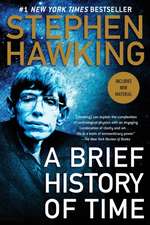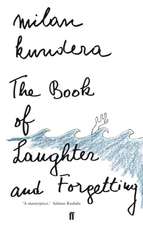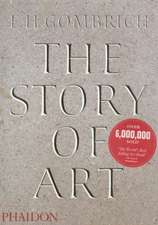Postwar: A History of Europe Since 1945: Waterstones Reading the 21st Century
Autor Tony Judten Limba Engleză Paperback – 3 iun 2010
FINALIST FOR THE PULITZER AWARD
A magisterial and acclaimed history of post-war Europe, from Germany to Poland, from Western Europe to Eastern Europe, selected as one of New York Times Ten Best Books of the Year Europe in 1945 was drained. Much of the continent was devastated by war, mass slaughter, bombing and chaos. Large areas of Eastern Europe were falling under Soviet control, exchanging one despotism for another.
Today, the Soviet Union is no more and the democracies of the European Union reach as far as the borders of Russia itself. Postwar tells the rich and complex story of how we got from there to here, demystifying Europe's recent history and identity, of what the continent is and has been. 'It is hard to imagine how a better - and more readable - history of the emergence of today's Europe from the ashes of 1945 could ever be written...All in all, a real masterpiece' Ian Kershaw, author of Hitler
| Toate formatele și edițiile | Preț | Express |
|---|---|---|
| Paperback (2) | 97.19 lei 24-30 zile | +43.78 lei 5-11 zile |
| Random House – 3 iun 2010 | 97.19 lei 24-30 zile | +43.78 lei 5-11 zile |
| Penguin Books – 31 aug 2006 | 161.51 lei 3-5 săpt. | +48.95 lei 5-11 zile |
Din seria Waterstones Reading the 21st Century
-
 Preț: 74.85 lei
Preț: 74.85 lei - 15%
 Preț: 81.47 lei
Preț: 81.47 lei -
 Preț: 38.86 lei
Preț: 38.86 lei - 14%
 Preț: 56.55 lei
Preț: 56.55 lei - 23%
 Preț: 54.35 lei
Preț: 54.35 lei - 22%
 Preț: 55.47 lei
Preț: 55.47 lei - 23%
 Preț: 49.51 lei
Preț: 49.51 lei - 19%
 Preț: 69.83 lei
Preț: 69.83 lei - 27%
 Preț: 51.02 lei
Preț: 51.02 lei - 22%
 Preț: 55.36 lei
Preț: 55.36 lei - 15%
 Preț: 59.94 lei
Preț: 59.94 lei - 15%
 Preț: 109.57 lei
Preț: 109.57 lei -
 Preț: 71.62 lei
Preț: 71.62 lei - 24%
 Preț: 53.43 lei
Preț: 53.43 lei - 22%
 Preț: 50.40 lei
Preț: 50.40 lei - 30%
 Preț: 49.75 lei
Preț: 49.75 lei - 20%
 Preț: 57.69 lei
Preț: 57.69 lei - 21%
 Preț: 56.42 lei
Preț: 56.42 lei - 33%
 Preț: 34.87 lei
Preț: 34.87 lei - 22%
 Preț: 50.99 lei
Preț: 50.99 lei - 21%
 Preț: 67.38 lei
Preț: 67.38 lei - 22%
 Preț: 56.07 lei
Preț: 56.07 lei - 17%
 Preț: 41.51 lei
Preț: 41.51 lei - 24%
 Preț: 52.64 lei
Preț: 52.64 lei -
 Preț: 70.07 lei
Preț: 70.07 lei -
 Preț: 69.20 lei
Preț: 69.20 lei - 16%
 Preț: 47.67 lei
Preț: 47.67 lei - 14%
 Preț: 56.24 lei
Preț: 56.24 lei -
 Preț: 67.10 lei
Preț: 67.10 lei -
 Preț: 69.07 lei
Preț: 69.07 lei - 22%
 Preț: 50.81 lei
Preț: 50.81 lei - 16%
 Preț: 58.59 lei
Preț: 58.59 lei -
 Preț: 58.49 lei
Preț: 58.49 lei - 41%
 Preț: 43.05 lei
Preț: 43.05 lei -
 Preț: 56.83 lei
Preț: 56.83 lei -
 Preț: 108.68 lei
Preț: 108.68 lei - 23%
 Preț: 44.35 lei
Preț: 44.35 lei -
 Preț: 51.45 lei
Preț: 51.45 lei -
 Preț: 57.14 lei
Preț: 57.14 lei -
 Preț: 70.22 lei
Preț: 70.22 lei - 25%
 Preț: 47.53 lei
Preț: 47.53 lei - 20%
 Preț: 41.86 lei
Preț: 41.86 lei - 22%
 Preț: 55.98 lei
Preț: 55.98 lei - 23%
 Preț: 49.60 lei
Preț: 49.60 lei - 23%
 Preț: 39.67 lei
Preț: 39.67 lei - 21%
 Preț: 56.51 lei
Preț: 56.51 lei -
 Preț: 73.70 lei
Preț: 73.70 lei - 23%
 Preț: 53.77 lei
Preț: 53.77 lei - 45%
 Preț: 39.19 lei
Preț: 39.19 lei -
 Preț: 69.72 lei
Preț: 69.72 lei
Preț: 97.19 lei
Preț vechi: 111.77 lei
-13% Nou
18.60€ • 20.21$ • 15.64£
Carte disponibilă
Livrare economică 03-09 aprilie
Livrare express 15-21 martie pentru 53.77 lei
Specificații
ISBN-10: 009954203X
Pagini: 960
Ilustrații: 24pp b/w photographs, 4 maps
Dimensiuni: 126 x 195 x 50 mm
Greutate: 0.71 kg
Editura: Random House
Colecția Vintage Books
Seria Waterstones Reading the 21st Century
Locul publicării:United Kingdom
Notă biografică
Tony Judt was educated at King's College, Cambridge and the Ecole Normale Superieure, Paris, and taught at Cambridge, Oxford, and Berkeley. He was the Erich Maria Remarque Professor of European Studies at New York University; in addition to Director of the Remarque Institute, which is dedicated to the study of Europe and which he founded in 1995. The author or editor of fourteen books, Professor Judt was a frequent contributor to The New York Review of Books, the Times Literary Supplement, the New Republic, the New York Times and many other journals in Europe and the US. Professor Judt is the author of Ill Fares the Land, Reappraisals: Reflections on the Forgotten Twentieth Century, and Postwar: A History of Europe Since 1945, which was one of the New York Times Book Review's Ten Best Books of 2005, the winner of the Council on Foreign Relations Arthur Ross Book Award, and a finalist for the Pulitzer Prize. He died in August, 2010 at the age of sixty-two.
Cuprins
Introduction
Part One: Post-War: 1945-1953
I. The Legacy of War
II. Retribution
III. The Rehabilitation of Europe
IV. The Impossible Settlement
V. The Coming of the Cold War
VI. Into the Whirlwind
VII. Culture Wars
Coda. The End of Old Europe
Part Two: Prosperity and Its Discontents: 1953-1971
VIII. The Politics of Stability
IX. Lost Illusions
X. The Age of Affluence
XI. The Social Democratic Hour
XII. The Spectre of Revolution
XIII. The End of the Affair
Part Three: Recessional: 1971-1989
XIV. Diminished Expectations
XV. Politics in a New Key
XVI. A Time of Transition
XVII. The New Realism
XVIII. The Power of the Powerless
XIX. The End of the Old Order
Part Four: After the Fall: 1989-2005
XX. A Fissile Continent
XXI. The Reckoning
XXII. The Old Europe—:and the New
XXIII. The Varieties of Europe
XXIV. Europe as a Way of Life
Epilogue
From the House of the Dead: An Essay on Modern European Memory
Index
Recenzii
Remarkable... The writing is vivid; the coverage-of little countries as well as of great ones-is virtually superhuman. (Louis Menand, The New Yorker)
























